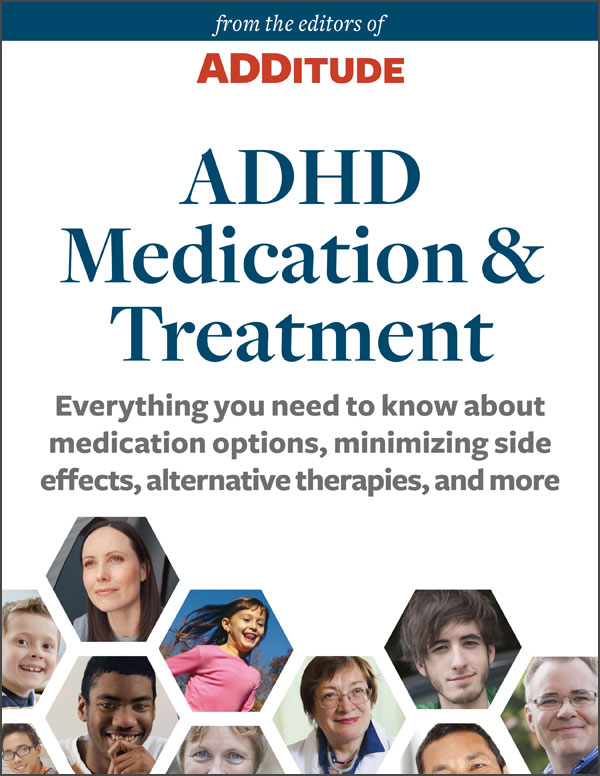“15 Ways to Make ADHD Patients Feel Seen and Heard.”
“I have been treating ADHD for more than 15 years and what my new patients tell me about the struggles they’ve endured while seeking care is disheartening and depressing. Many of us providers haven’t been taught about ADHD in adults and are afraid to diagnose or treat it. To help you, the provider, be part of the solution, instead of part of the problem, I offer the following points to help you understand ADHD and really see the patient in front of you.”
The following is a personal essay, and not a medical recommendation endorsed by ADDitude. For more information about ADHD diagnosis and treatment, speak with your physician.
As a family physician who specializes in ADHD, I see patients who are not just frustrated by their interactions with providers but devastated by the way they have been treated. They have significant impairments that provider after provider has minimized, and they have a very hard time getting help.
I have been treating ADHD for more than 15 years and what my new patients tell me about the struggles they’ve endured while seeking care is disheartening and depressing. Many of us providers haven’t been taught about ADHD in adults and are afraid to diagnose or treat it. To help you, the provider, be part of the solution, instead of part of the problem, I offer the following points to help you understand ADHD and really see the patient in front of you.
The Person in Front of You
- The person in your office is scared to death that you are going to judge them or invalidate their experiences. They have probably spent weeks or months debating whether they should say anything about their impairments.
- This person likely has been let down by the medical system that minimizes their impairments and even scoffs at their pain. As they’ve learned to expect such treatment, they may feel they have to go overboard to convince you that they really are impaired.
- At the same time, the person in front of you likely feels ashamed that they can’t “adult” — that they can’t handle the mundane details of human existence that we all have to deal with, so they may minimize their impairments. Patients, in sum, will either overstate or minimize their impairments. Both sides are normal.
[Read: Is Adult ADHD Real? Yes — and Still Heavily Stigmatized]
You, the Provider
- Please check your filters at the door and listen to your patient with curiosity and an open mind. It may help to think, “What if everything they’re saying is true?” Remember that your patient showed up because they are sure that something is wrong with them. They feel awful, tired, and overwhelmed no matter what they do. Attend to your patient’s concerns thoroughly.
- Pause if you catch yourself thinking, “That’s normal. I do that.” We all know what it is to experience forgetfulness, moments of impulsivity, and other behaviors that look like ADHD. What signals ADHD is the degree to which a patient’s symptoms cause impairment and suffering.
- Treating ADHD is incredibly rewarding. Most of us went into medicine to help people and make a positive difference in someone’s life. Helping a patient manage their condition results in truly life-changing outcomes.
On Diagnosing ADHD
- There is no one perfect way to diagnose ADHD. Most people are diagnosed with the use of rating scales like the ASRS, Barkley, or Conners, which are often sufficient to screen for ADHD alone.
- Even if you aren’t a specialist, you can diagnose ADHD.
- Neuropsychological tests are not a good way to diagnose ADHD. The psychologists who do those tests feel even less comfortable diagnosing ADHD than you do.
- ADHD is more underdiagnosed than it is overdiagnosed.
[Get This Free Download: The Clinicians’ Guide to Differential Diagnosis of ADHD]
On Treating ADHD
- Stimulants really are the best first-line treatment for ADHD.
- The Schedule II controlled substance classification for stimulants makes them sound more addictive than they actually are. After all, consider the fact that many patients who take prescribed stimulant medication for ADHD frequently miss doses and, in my experience, days of medication. How often do you think your patients who take opiates or benzodiazepines forget to take their medication? Not very often because they get physical withdrawal symptoms if they miss a dose.
- There is no way to know ahead of time what stimulant and dosage will work best for a patient. Trust what the patient says about how their medication is working. My experience shows that, if left to make the decision on their own, most patients will choose too low of a dose.
- Stimulants need to work for as long as possible during the day, not just for a few hours. A patient shouldn’t have to pick and choose the hours during which their medication should work in order for them to function and meet life’s demands. Would you want that for yourself? Would you present your most focused, productive self only to your morning patients? What about your afternoon patients and your family? Is it fair that they see your most irritable, unfocused self? These are the kinds of decisions patients have to make if their stimulant doesn’t last all day long.
- Most patients are not drug seeking. They are desperately trying to find a way to function like adults and gain control over their lives. What they seek most is your understanding and support.
Listening to Patients with ADHD: Next Steps
- Get This Free Download: The Clinicians’ Guide to Treating Complex ADHD
- Read: A Clinicians’ Guide to Better Patient Communication
- Read: Racial Disparities in ADHD Care — How Clinicians Can Better Serve Patients
SUPPORT ADDITUDE
Thank you for reading ADDitude. To support our mission of providing ADHD education and support, please consider subscribing. Your readership and support help make our content and outreach possible. Thank you.






